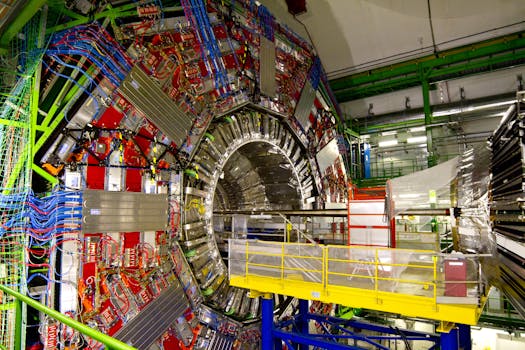
Introduction to Quantum Mechanics

Understanding quantum mechanics is crucial for grasping the fundamental principles that govern our universe. Quantum mechanics challenges classical notions of reality, introducing concepts that can seem counterintuitive yet are supported by experimental evidence. This article delves into the nature of quantum mechanics and its implications for reality.
Key Concepts in Quantum Mechanics

At the heart of quantum mechanics lies the principle of wave-particle duality. Particles, such as electrons and photons, exhibit both wave-like and particle-like properties depending on the type of measurement performed. This duality is a fundamental aspect of quantum behavior, leading to the famous double-slit experiment that illustrates how particles can interfere like waves.
Another pivotal concept is quantum superposition, where particles can exist in multiple states simultaneously. This idea leads to the phenomenon of entanglement, where particles become interconnected, and the state of one particle can instantly affect another, regardless of distance. Such concepts challenge our classical understanding of separability and locality.
The Observer Effect and Reality

The observer effect highlights the role of measurement in quantum mechanics. The act of observing a quantum system can alter its state, raising profound questions about reality. Are the properties of quantum systems determined prior to measurement, or do we influence them through observation? This inquiry touches on philosophical implications regarding the nature of reality itself.
Implications for Our Understanding of Reality

Quantum mechanics fundamentally reshapes our understanding of reality. If particles exist in superpositions until measured, does this imply that reality is not as concrete as we perceive? The implications extend to fields such as quantum computing and quantum cryptography, where harnessing quantum phenomena can lead to revolutionary advancements.
Conclusion

In conclusion, understanding quantum mechanics is vital for comprehending the fabric of our universe. The principles of wave-particle duality, superposition, and the observer effect not only challenge our classical views but also open up new avenues for technology and philosophy. As we continue to explore these concepts, we may uncover deeper truths about the nature of reality itself.






